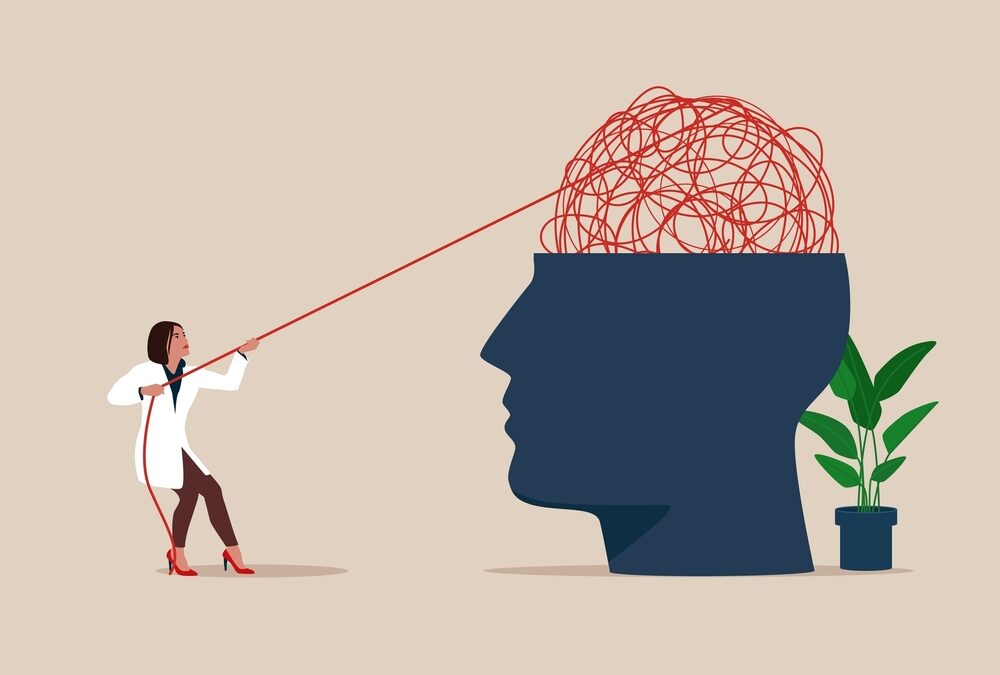Anxiety disorders are among the most common mental health conditions, affecting millions of people worldwide. These disorders range from generalized anxiety disorder (GAD) to social anxiety, panic disorders, and specific phobias. Thankfully, a wide array of treatment options exists, including psychotherapy, medication, lifestyle changes, and self-help strategies. This guide explores the latest approaches to managing and overcoming anxiety.
1. Understanding Anxiety Disorders
Anxiety is a natural response to stress, but for those with an anxiety disorder, it becomes overwhelming, persistent, and disruptive. Symptoms may include excessive worry, restlessness, fatigue, difficulty concentrating, muscle tension, and sleep disturbances. Early identification and intervention are critical for effective treatment.
2. Therapies for Anxiety
Cognitive Behavioral Therapy (CBT):
CBT is considered the gold standard for anxiety treatment. It helps individuals identify and challenge negative thought patterns and develop healthier coping mechanisms. CBT is highly effective for conditions like GAD, social anxiety, and panic disorders.
Exposure Therapy:
This approach is particularly beneficial for specific phobias and PTSD. Gradual exposure to anxiety-provoking situations helps reduce fear and avoidance behaviors.
Acceptance and Commitment Therapy (ACT):
ACT incorporates mindfulness and behavioral strategies to help patients accept their anxiety and commit to actions aligned with their values, improving overall well-being.
3. Medications
Medications can be an effective part of anxiety treatment, especially when symptoms are severe.
- Selective Serotonin Reuptake Inhibitors (SSRIs): Common first-line medications include sertraline and fluoxetine, which regulate mood by increasing serotonin levels.
- Benzodiazepines: Fast-acting but potentially habit-forming, these drugs are used for short-term relief during acute episodes.
- Beta-Blockers: Often prescribed for performance-related anxiety, they help reduce physical symptoms like rapid heartbeat.
Other options include tricyclic antidepressants, monoamine oxidase inhibitors (MAOIs), and newer approaches like ketamine for treatment-resistant cases.
4. Lifestyle Changes and Self-Help
Lifestyle modifications play a crucial role in managing anxiety:
- Exercise: Regular physical activity releases endorphins, reduces stress, and improves overall mood.
- Diet: A balanced diet rich in vitamins like B12 and magnesium may reduce symptoms. Limiting caffeine and alcohol is also essential.
- Sleep Hygiene: Prioritizing restful sleep can significantly impact anxiety management.
- Relaxation Techniques: Practices like yoga, meditation, and deep breathing can lower stress levels.
5. Alternative and Complementary Therapies
Some individuals explore alternative treatments, such as:
- Herbal Supplements: While options like kava and valerian root have shown promise, their safety and efficacy require further research. Always consult a healthcare provider before trying supplements.
- Brain Stimulation Therapies: Emerging techniques like repetitive transcranial magnetic stimulation (rTMS) and vagus nerve stimulation show potential for severe anxiety.
6. Building Support Systems
Joining a support group can help individuals connect with others experiencing similar challenges. Talking openly about feelings, journaling, and practicing time management are additional tools for coping with anxiety. Seeking the support of friends and family is equally vital.
7. When to Seek Professional Help
If anxiety significantly interferes with daily life, it’s essential to consult a healthcare provider. Preparing for an appointment by noting symptoms, triggers, and family history can facilitate accurate diagnosis and effective treatment planning.
Conclusion
Anxiety disorders are highly treatable, and the right combination of therapies, medication, lifestyle changes, and self-help strategies can lead to significant improvement. It’s important to remember that everyone’s journey with anxiety is unique, and treatment plans should be personalized. With determination and the right support, managing anxiety is entirely achievable.

